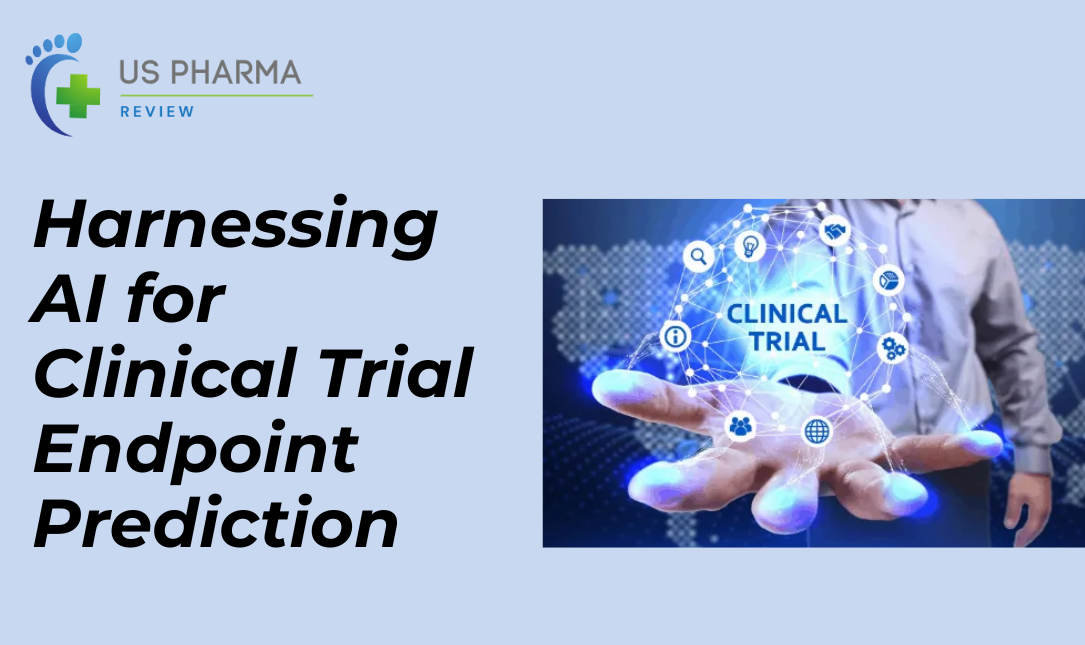Travel Tips
Lorem ipsum dolor sit amet, consectetur adipiscing elit.

Clinical trials are the backbone of pharmaceutical innovation, yet they are often time-consuming, expensive, and fraught with uncertainties. Traditionally, clinical trial endpoints—specific measures used to assess the efficacy or safety of a treatment—have been determined based on historical data and expert judgment. However, the advent of AI in Clinical Trial Endpoints is revolutionizing this process by enabling more precise predictions and smarter decision-making.
Artificial intelligence (AI) technologies, particularly machine learning and deep learning, are now being leveraged to anticipate trial outcomes with higher accuracy. Through predictive modelling in trials, researchers can identify patterns in complex datasets, forecast potential challenges, and streamline the drug development process. This evolution not only reduces costs but also enhances patient safety by optimizing trial designs from the outset.
The application of AI in Clinical Trial Endpoints extends beyond simple data analysis. AI algorithms can evaluate vast amounts of historical clinical data, identify relevant biomarkers, and predict which endpoints are most likely to demonstrate treatment efficacy. This approach empowers researchers to:
Select optimal endpoints that align with trial objectives.
Forecast adverse events and patient responses.
Reduce trial duration and associated costs.
Deep learning trial outcomes are particularly promising in this context. By analyzing multi-dimensional datasets, including genomics, imaging, and electronic health records, AI can uncover insights that human analysis might miss. Consequently, pharmaceutical companies can make data-driven decisions that improve the probability of trial success.
Predictive modelling in trials using AI involves creating algorithms capable of simulating clinical outcomes based on various patient and treatment scenarios. Unlike traditional statistical methods, AI-driven predictive models can accommodate complex, nonlinear relationships between variables, making predictions more robust and reliable.
For instance, machine learning models can identify subpopulations that respond favorably to a drug or predict potential side effects before they manifest in large cohorts. Such capabilities are invaluable for pharmaceutical developers aiming to maximize efficacy while minimizing risks. Moreover, predictive modelling enhances adaptive trial designs, allowing modifications mid-study based on real-time AI-driven insights.
By integrating data science in clinical research, trial teams can also monitor ongoing studies more effectively. Continuous learning models enable dynamic adjustments to protocols, ensuring that trials remain efficient, safe, and ethically sound.
One of the most transformative aspects of AI in clinical trials is the application of deep learning trial outcomes. Deep learning algorithms, modeled after neural networks, excel at recognizing complex patterns in large datasets. This capability is particularly beneficial when evaluating endpoints that involve multifactorial data, such as tumor response or cognitive function scores.
Deep learning approaches enable researchers to:
Analyze imaging data for early indicators of treatment efficacy.
Detect subtle trends in biomarker expression that correlate with clinical outcomes.
Predict patient trajectories and personalize treatment plans.
These insights accelerate the clinical development process by identifying potential successes and failures earlier, reducing the risk of costly late-stage trial failures. As a result, deep learning empowers pharmaceutical companies to bring effective treatments to market faster.
Data science in clinical research is the backbone of effective AI implementation. High-quality, well-curated data is essential for training AI models that can reliably predict clinical trial endpoints. This involves:
Harmonizing diverse data sources, including electronic health records, laboratory results, and wearable devices.
Ensuring data privacy and compliance with regulatory standards.
Continuously updating models as new data emerges.
By embedding data science practices into clinical trial workflows, researchers can enhance model accuracy and maintain transparency. Additionally, integrating AI-driven endpoint prediction with other emerging technologies, such as blockchain in pharma, can further improve data integrity and traceability across the trial lifecycle.
While the promise of AI in Clinical Trial Endpoints is immense, it is not without challenges. One primary concern is model interpretability; clinicians and regulatory bodies must understand how AI arrives at specific endpoint predictions. Black-box algorithms can create skepticism and regulatory hurdles if their decision-making processes are opaque.
Data quality and bias are other significant issues. AI models trained on incomplete or non-representative datasets can yield misleading predictions, potentially affecting patient safety. Ensuring fairness, transparency, and regulatory compliance is critical for the ethical deployment of AI in clinical trials.
The future of AI in Clinical Trial Endpoints is exceptionally promising. As AI technologies continue to evolve, we can expect:
Increased adoption of predictive modelling to design more efficient trials.
Enhanced patient stratification and personalized medicine approaches.
Seamless integration of AI with real-world evidence, digital health tools, and wearables.
By leveraging AI-driven insights, pharmaceutical companies can improve success rates, reduce costs, and bring life-saving therapies to patients faster. The combination of deep learning trial outcomes and data science in clinical research will ensure that clinical trials are not only more efficient but also more accurate and patient-centric.
AI is no longer a futuristic concept in clinical trials—it is a practical tool that is reshaping the landscape of drug development. Harnessing AI in Clinical Trial Endpoints allows researchers to predict outcomes more accurately, optimize trial designs, and ultimately accelerate the path to regulatory approval. By embracing predictive modelling, deep learning, and robust data science, the pharmaceutical industry can tackle traditional trial inefficiencies, enhance patient safety, and ensure that promising therapies reach those in need more quickly.
The integration of AI into clinical trial endpoints is not just a technological evolution; it is a paradigm shift in how we approach clinical research, combining innovation, precision, and ethical responsibility for a better healthcare future.